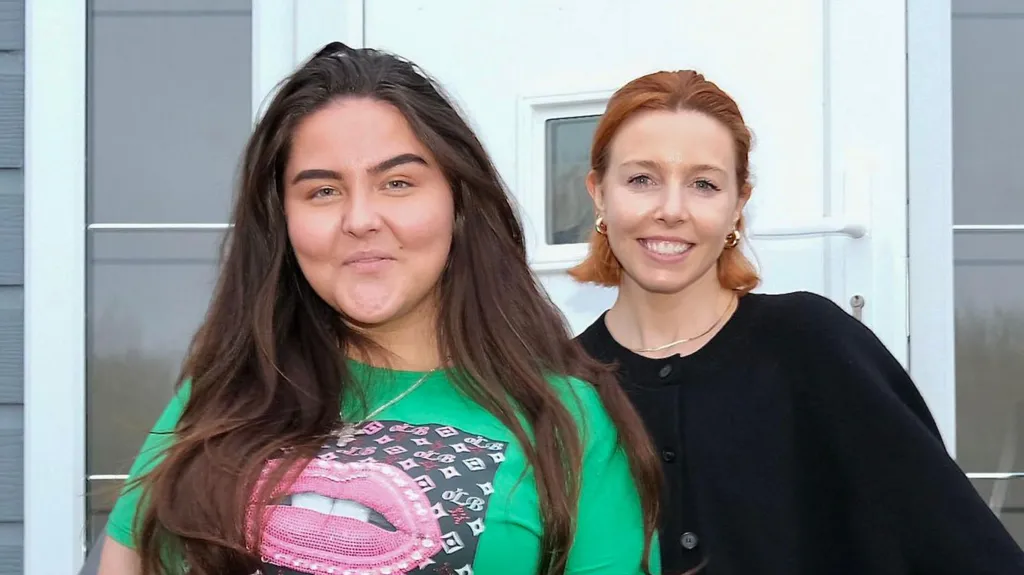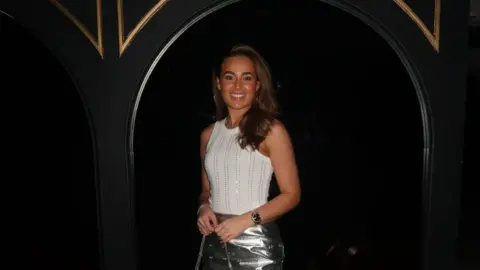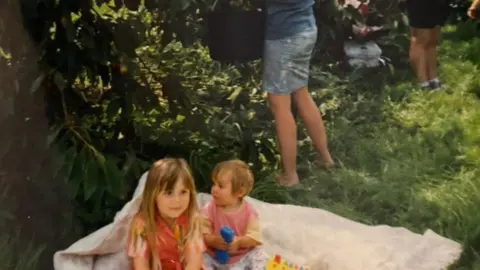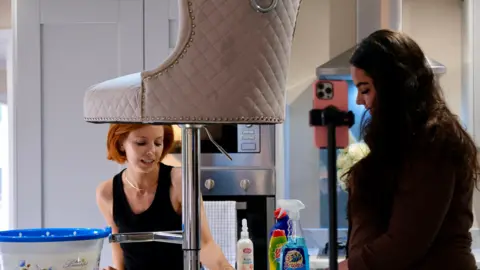
 BBC/Little Venice Studios
BBC/Little Venice Studios"Are they going to think I'm going to steal stuff from here?"
That's the question Chantelle remembers asking herself after starting a new job and wondering whether or not to share her Romany heritage.
Chantelle, 23 from Bedfordshire, says she's proud of her background but has sometimes been "nervous" to share it because of negative portrayals of her community in the media.
"When you watch films, it's always like, 'Oh, these are the Gypsies, they're the bad guys,'" she explains.
Chantelle features in Stacey Dooley's BBC documentary Growing Up Gypsy, which follows three young Romany women as they navigate everyday life.
The show comes as the charity Friends, Families and Travellers (FFT) - an organisation working to end discrimination against the Gypsy, Roma and Traveller (GRT) community - says it regularly hears from Romany Gypsy women who feel pressure to hide their identity in professional or public spaces to avoid discrimination and hate.
Ebony, 23 from Nottinghamshire, works as a beautician and recalls a client at a previous job, who didn't know about her heritage, telling her she didn't want to park in a certain area because there were Gypsies living near there.
"And I was sat there, painting her nails, like: 'Little do you know'," she recalls thinking.
 Ebony
EbonyRomany Gypsies are one of the three ethnic groups within the GRT community. Some in the community prefer to refer to themselves as travellers, while others prefer to use the term Gypsy.
Presenter Dooley says she felt privileged to be invited into the community but that being with the women and their families has shown her "how unwelcome they can sometimes be made to feel".
It's something that as a Romany Gypsy myself, I've had conflicting feelings about.
Now 26, I'm incredibly proud of my heritage - it's often one of the first things I'll share about myself and I have incredible memories of summers spent in the cherry orchard where my family worked.
However, I didn't always feel that way. At school, I was reluctant to tell people about my identity for fear of being called a derogatory name and when I applied for university, my parents told me not to tick the GRT ethnicity box on the entrance form in case it hurt my chances of getting in.
I filled it in anyway, and have grown more confident in talking about my heritage but the hesitation is still there and is shared by many in the community today.
 Shola Lee
Shola Lee"There is a lot of hate and discrimination against travellers, and people don't get jobs because they're travellers," says Ebony, on why she's hidden her heritage in the past.
A spokesperson for the FFT says prejudice against the GRT community "remains widespread" and "too often goes unchallenged".
And in 2021, a YouGov poll organised by the FFT suggested that 22% of people surveyed would be uncomfortable employing a Gypsy or traveller.
However, Ebony also says she's had positive interactions with her employers when she did share her heritage and loves where she currently works.
 BBC/Little Venice Studios
BBC/Little Venice StudiosChantelle now enjoys working as a content creator, with more than 400,000 followers on TikTok, and is more open in speaking about her culture, explaining people online were really "interested" to learn more about her heritage.
Her content includes answering followers' questions about her community and making traditional dishes, like bacon pudding, which she learned to make from her grandmother.
However, she still sees negative comments, with some even claiming those who live in a house are not Gypsies, which Chantelle says shows a misunderstanding of how her culture works.
"It goes back in your generations and it's in your blood," she says.
Despite the comments, Chantelle continues to make videos and appreciates her heritage, explaining: "I know we get talked bad about and things like that, but I'm proud of it."
Ebony, meanwhile, hopes that people watching the documentary learn more about the GRT community and aren't so prejudiced towards them.
"I don't look at every non-traveller like you're a bad person," she says, adding that the community does experience that type of prejudice.
"That's what I would like people to sort of open their eyes to," she adds.